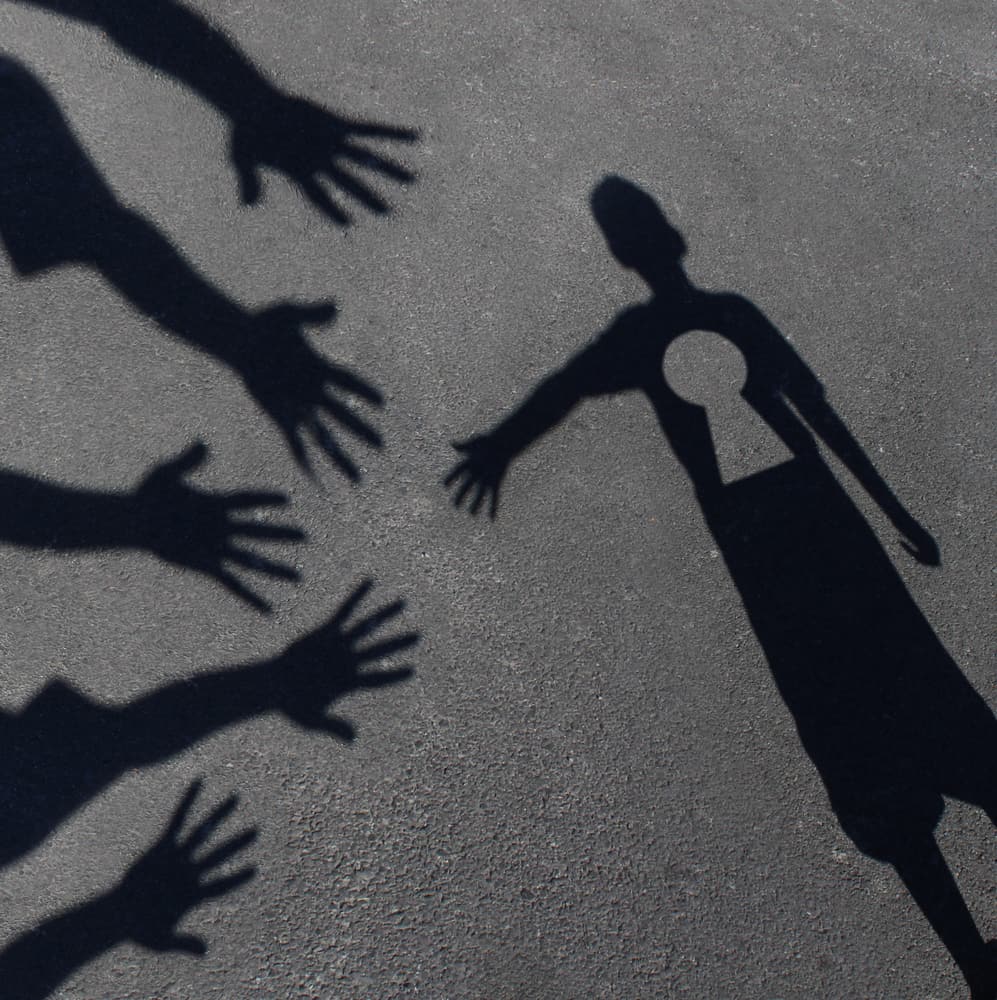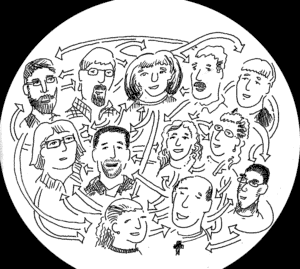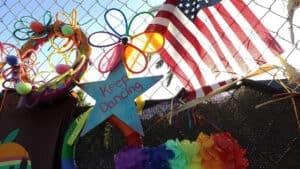
I believe there are moments in this life where we get glimpses of the belonging we will experience in the next life. For me, I’ve had two particular experiences of that sense of belonging. The first was my confirmation into the Anglican Church. The second was at an Oriented to Love dialogue I recently attended.
My confirmation was about two years ago, and I remember it in detail. I was so nervous, I messed up the liturgical response to the archbishop’s question, despite the fact I was reading it off a paper right in front of me. But when the archbishop placed his hands on my head to confirm me and bless me I felt so much peace, all the nervousness faded away, and I knew I belonged. After the service that night I wrote in my journal, quoting a line from the book Perks of Being a Wallflower, “I feel infinite.”
And I did. Not in an immortal, unkillable sense, but in the sense of being connected to something far bigger and more lasting than myself. I had family—spiritual brothers and sisters, I had shared history. For better or worse the past of the Anglican Church was part of my story now—I had a name and a theological foundation to stand upon after years of calling myself a Christian mutt and claiming no denominational allegiance. I’m not saying Anglicans have everything right; in fact I’m convinced we do not. Nor am I claiming we are the best or singular true denomination. We’ve got our good points and our bad, just like all the others. But I have found a home here, a niche that I belong to, a connection that at times, like the night of my confirmation, allows me to transcend the present sense of separation and to taste the sweetness of belonging that we will share in one day for eternity.
This was the first place I had ever walked into where everyone knew me as both Christian and queer. And I was accepted, but not just accepted—I was welcome.
I had a similar foretaste of that unity at the Oriented to Love dialogue. For one weekend a small group of Christians from diverse theological backgrounds gathered to dialogue about faith and sexual minorities. Half our group was made up of sexual minorities (gay, lesbian, bisexual, same-sex attracted) and the other half consisted of the sexual majority (straight, heterosexual). All wanted to learn more about and discuss LGBTQ issues within the context of our faith in Christ. We had done lots of preparatory work, prompted by our facilitator, so we had already shared a fair bit about ourselves before we’d even met. When I showed up on Friday afternoon and started meeting the other participants I was keenly aware that this was the first place I had ever walked into where everyone knew me as both Christian and queer. I didn’t need to fear judgment or rejection for either of those things. The two most seemingly contradictory parts of my life (according to our culture) were already known by all, and I was accepted, but not just accepted—I was welcome. What’s more, there were others in the group like myself, people who were both Christian and sexual minorities. In a sense these were “my people”—we had shared history, shared struggles, shared fears and hopes, in a way that non-LGBTQ Christians or non-Christian LGBTQs don’t know. That kind of shared experience creates an incredible sense of belonging. That belonging lasted throughout our time together, and continues now as we stay in touch.
Much like Anglicanism, this group of people is not perfect, we don’t have it all together, we don’t have all the answers, we don’t agree on everything. But we listen, we hear one another, we share ourselves, we seek Christ together, and we are united by the Holy Spirit. That is the kind of unity I expect we will experience when we are united in eternity. That unity is a beautiful glimpse at how we are meant to truly belong.
Tevin Tietje blogs at On Being an Anomaly.


